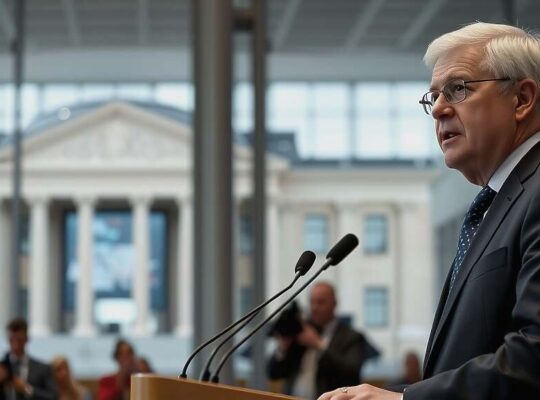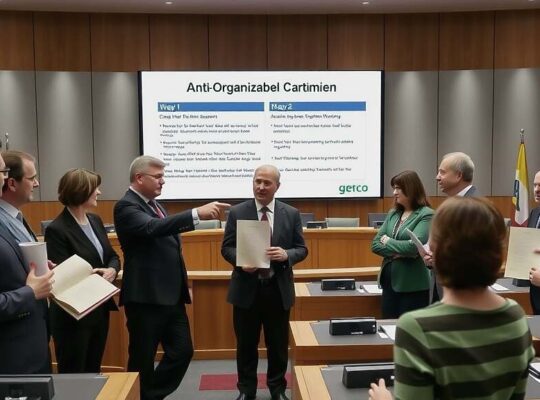The German government’s latest pension insurance report, approved by the cabinet this week, paints a complex and politically sensitive picture of the nation’s retirement system. Projections indicate an overall increase of approximately 45 percent in German pensions by 2039, representing an average annual growth rate of 2.8 percent. While ostensibly positive, this surge is deeply intertwined with ongoing debates regarding the sustainability and future financing of the system.
A significant factor contributing to the revised projections is the unexpectedly robust performance of contribution revenues this year, allowing for a sustainability reserve to be estimated at around €41.5 billion – equivalent to 1.39 months’ worth of pension payments. This surplus allows the government to maintain the current contribution rate of 18.6 percent until 2027. This stability marks a significant deviation from previous forecasts, including the 2024 pension insurance report, which had anticipated a rate increase for 2027. This policy reversal is likely to be met with scrutiny, with critics questioning whether delaying the inevitable contribution hike is merely a short-term political maneuver that will exacerbate problems later.
The report highlights the continued adherence to the so-called “capping line” (Haltelinie), a policy extension significantly impacting the net pension replacement rate. Currently standing at 48 percent, this rate is politically contentious, with opposition arguing it artificially limits payouts and fails to adequately address the needs of future retirees, particularly those with lower incomes. Maintaining the line until 2031 is presented as a stabilization measure, yet the report explicitly projects a decline to 46.3 percent by 2039 once the policy expires.
This decline underscores the fragility of the system and raises concerns about the long-term adequacy of German pensions. Experts are already warning that the delay in addressing structural challenges, coupled with demographic shifts and rising life expectancy, could severely compromise the financial security of future generations of retirees, prompting renewed calls for fundamental reforms beyond the temporary reprieve afforded by current surpluses. The government’s ability to navigate these opposing pressures and ensure the long-term viability of the pension system will be a crucial test of its political resolve.












